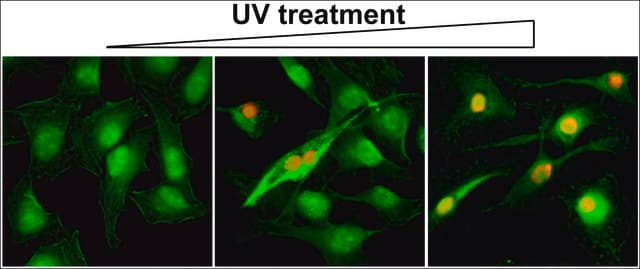MABC785
Anti-SOX9 Antibody, clone 4B7.1
clone 4B7.1, from mouse
Synonym(s):
Transcription factor SOX-9, Sex-determining region Y-box 9 protein, SRY-related HMG-box gene 9
About This Item
Recommended Products
biological source
mouse
Quality Level
antibody form
purified immunoglobulin
antibody product type
primary antibodies
clone
4B7.1, monoclonal
species reactivity
human
species reactivity (predicted by homology)
rat (based on 100% sequence homology), mouse (based on 100% sequence homology), porcine (based on 100% sequence homology), chicken (based on 100% sequence homology), nonhuman primates (based on 100% sequence homology)
technique(s)
immunohistochemistry: suitable (paraffin)
western blot: suitable
isotype
IgG2bκ
NCBI accession no.
UniProt accession no.
shipped in
ambient
target post-translational modification
unmodified
Gene Information
human ... SOX9(6662) , SRA1(10011)
General description
Specificity
Immunogen
Application
Apoptosis & Cancer
Quality
Western Blotting Analysis: A 1:1,000 dilution of this antibody detected SOX9 in 10 µg of HepG2 cell lysate.
Target description
Linkage
Physical form
Storage and Stability
Other Notes
Disclaimer
Not finding the right product?
Try our Product Selector Tool.
recommended
Storage Class Code
12 - Non Combustible Liquids
WGK
WGK 1
Certificates of Analysis (COA)
Search for Certificates of Analysis (COA) by entering the products Lot/Batch Number. Lot and Batch Numbers can be found on a product’s label following the words ‘Lot’ or ‘Batch’.
Already Own This Product?
Find documentation for the products that you have recently purchased in the Document Library.
Our team of scientists has experience in all areas of research including Life Science, Material Science, Chemical Synthesis, Chromatography, Analytical and many others.
Contact Technical Service








